Enterprise Resource Planning (ERP) systems are becoming more popular and widely used by businesses today. Thanks to its comprehensive features and significant benefits, ERPs have been adopted for managing businesses’ operations efficiently. To understand what is ERP and how it works, this article will provide detailed information about it.
What is ERP?
Enterprise Resource Planning (ERP) is a system that automates all business processes and manages all business activities: marketing, sales, accounting, human resources, etc. Besides, this system allows the exchange and sharing of data.
What makes today’s ERP software more powerful is that all the disparate processes are unified and automated in one flexible system. As a result, this solution optimizes processes across your entire business. Also, a modern ERP solution offers:
- Flexible deployment options
- Improved security
- Sustainability
- low code customizability.
According to Statista, it will grow from 106.43 billion in 2023 to $107.6 billion in 2024. Actually, this software has filled every business need. It has become a vital tool for companies in any industry and of all sizes. Thus, enterprises are increasingly paying attention to ERP when implementing it into their business projects.
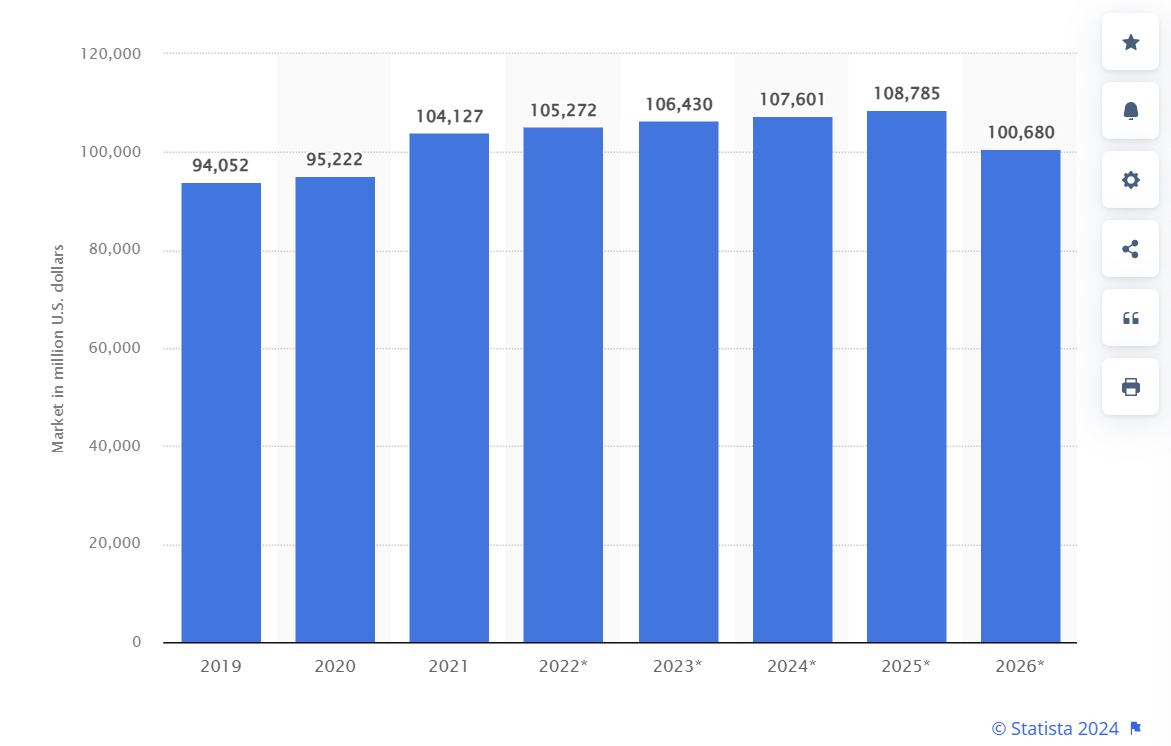
Source: Enterprise resource planning (ERP) software market revenues worldwide from 2019 to 2026 (in million U.S. dollars)
ERP Modules
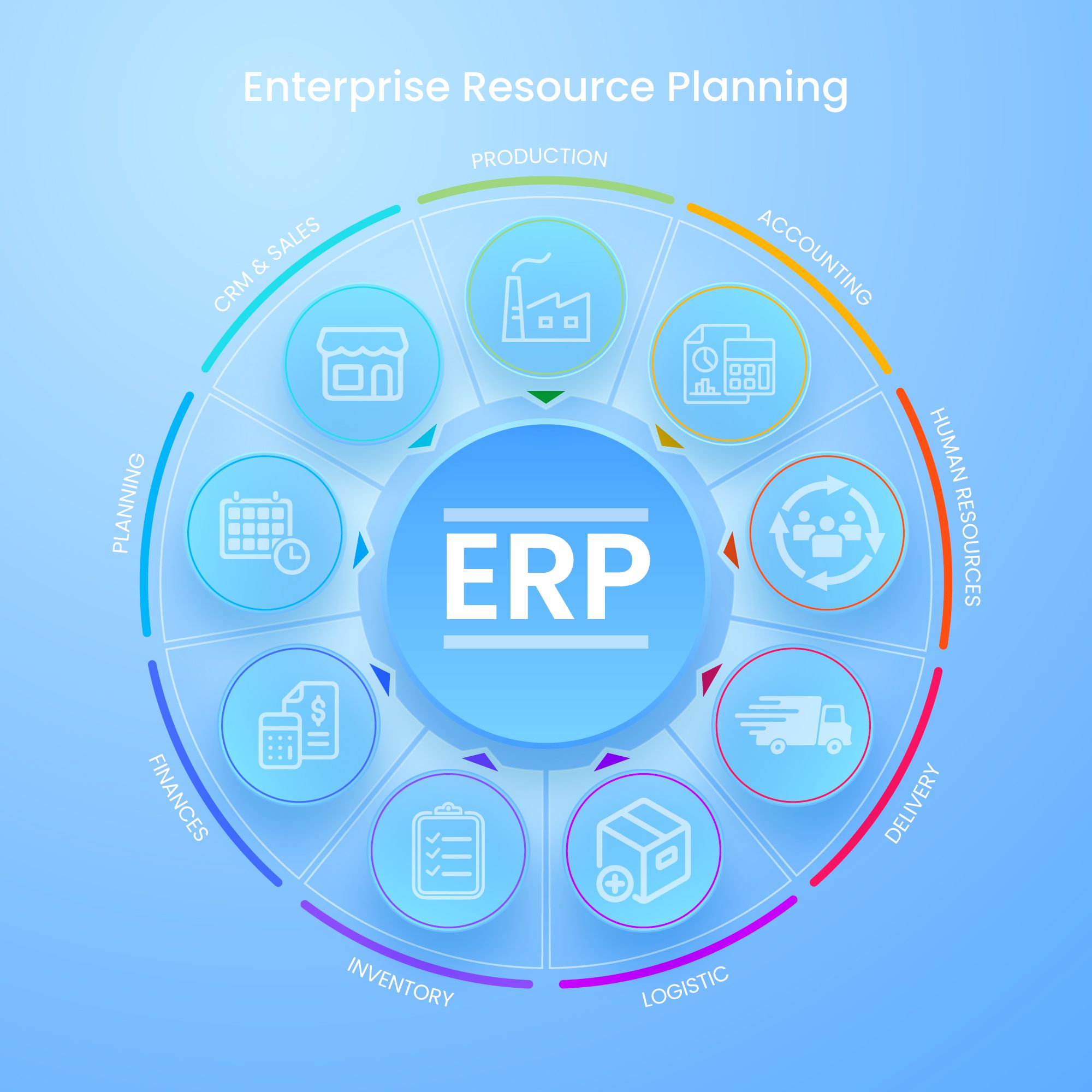
Each ERP will contain many ERP modules serving each different department. If you compare ERP to a desktop computer, ERP modules will be the screen, keyboard, mouse, CPU, etc.; each module will have its own use.
Modular ERP design will help businesses choose ERP modules that suit their business model. When they need to scale their business, they just need to add other functions without having to re-implement a new ERP.
Here are some core ERP modules:
- Finance
- Procurement
- Manufacturing
- Inventory Management
- Order Management
- Warehouse Management
- Supply Chain Management
- Customer Relationship Management (CRM)
- Professional Services Automation
- Workforce Management
- Human Resources Management
- ECommerce
- Marketing Automation
How Does an ERP System Work?
ERP systems automate and unify all data from different departments into one data source. Thus, employees can share and use all data with other departments.
This makes it easy for leaders to manage the entire operation of their business, avoiding errors and repetition of data. Additionally, businesses will reduce unnecessary data sources. Yet, they still ensure and improve business operations and revenue.
Types of ERP Deployment Models
When deploying an ERP system that suits the budget as well as business operations, companies also need to consider ERP models. To help you choose the right model, here are all the available ERP modules:
On-Premise ERP
Firstly, the on-premise model is traditional software managed by an internal IT team. With this model, you will purchase external software as an actual download or on a DVD/CD to install on your own servers and hard drives on computers and desktops. Some famous on-premise ERPs include SAP ERP, Oracle E-Business, Microsoft Dynamics GP, Infor LN, SYSPRO, etc.
Cloud ERP
Secondly, Cloud ERP is software delivered over the Internet. The software and servers will be located in different places and hosted by the vendor, a third party, or the company itself. Cloud computing provides cloud applications. So, the company won’t need an IT department or server infrastructure to keep the technology up and running. This model deployment includes single-tenant cloud ERP and multi-tenant cloud ERP. Some cloud ERPs you can consider are SAP S/4HANA Cloud, NetSuite ERP, Microsoft Dynamics 365, Infor CloudSuite, Acumatica Cloud ERP, etc.
Hybrid Cloud ERP
Following that, a hybrid cloud like SAP S/4HANA, Oracle Fusion Cloud ERP, and Epicor ERP is a combination of on-premises capabilities and some cloud services. Further, the hybrid solution helps customers migrate from one model to another without losing data or functionality.
Software as a Service (SaaS) ERP
Finally, a SaaS ERP implementation is a model where the software and cloud servers are hosted by the vendor. Vendors will maintain and upgrade the software as part of the service. All computer, storage, and cloud applications are services and not products, which provides a lot of advantages for businesses and lowers costs. Some popular SaaS ERP are NetSuite ERP, SAP Business ByDesign, Microsoft Dynamics 365, Workday ERP, etc.
Each ERP approach has its own set of benefits and drawbacks that make it a better or worse fit for different enterprises. SaaS ERP, for example, may often be launched faster and with reduced upfront expenses, although cloud ERP may provide more customization options. For many companies, deciding whether to employ on-premises, software-as-a-service (SaaS), or cloud ERP can be a hard and perplexing process.
What are the benefits of an ERP?

For businesses that are growing and tend to expand in the future, ERP systems implementation is indispensable for smooth business operations. Although the investment cost for an ERP project is quite high, it helps you save a lot of money in the long run. You will save a lot of personnel costs for manual data entry or running the company in many different departments. Besides, IT and training costs are also eliminated. When using ERP, businesses can control who can view and edit information. Administrators can also grant or allow anyone access.
With the use of a unified data source, barriers between departments will be eliminated. Furthermore, the same data source helps the company operate more smoothly. Errors from incorrect data entry in other departments are greatly reduced. Besides, ERP systems can easily create and analyze reports at any time using a single data source. You can analyze and compare functions between departments. The software will help businesses prepare various reports quickly and easily. ERPNext solution companies provide ongoing support to ensure the system grows with your business, adapting to new needs without the hassle of frequent overhauls.
ERP Implementation Challenges and Risks
Successfully implementing ERP projects for businesses will have significant positive effects, raising businesses to new heights. However, implementing this system is not easy. Behind those successful implementations, there are many ERP implementation challenges and risks that businesses have to face, such as overall cost, data quality issues, technical requirements, resistance, etc. These challenges can disrupt your ERP implementation or even cause it to fail. To avoid implementation not being as expected, businesses need to plan carefully.
ERP Solutions Providers
Currently, there are hundreds of ERP vendors around the world. Each vendor has its own set of features and benefits. So, you need to choose a vendor that is suitable for your business. We have selected and made a list of the top ERP software vendors on the market today. They have provided different solutions and functions to businesses in many different industries.
Oracle Netsuite
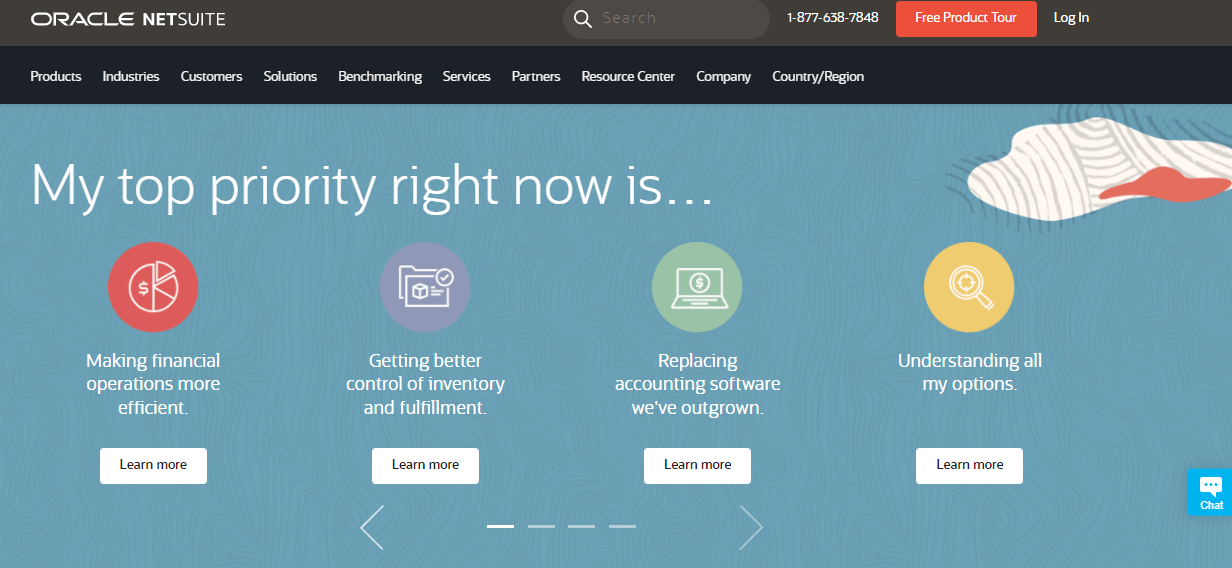
Oracle Netsuite ERP is one of the largest cloud software companies in the world. It is a suite of applications that integrate your finance and operations, including blockchain and IoT capabilities that connect your operations data, customers, products, etc. In addition, Oracle Netsuite ERP enables businesses to innovate quickly with modern user experiences and a customer-first approach. According to Netsuite, the company is used by more than 37,000 customers across 219 countries and territories as of 2024, demonstrating NetSuite’s global reach and popularity in serving different business needs.
Microsoft Dynamics
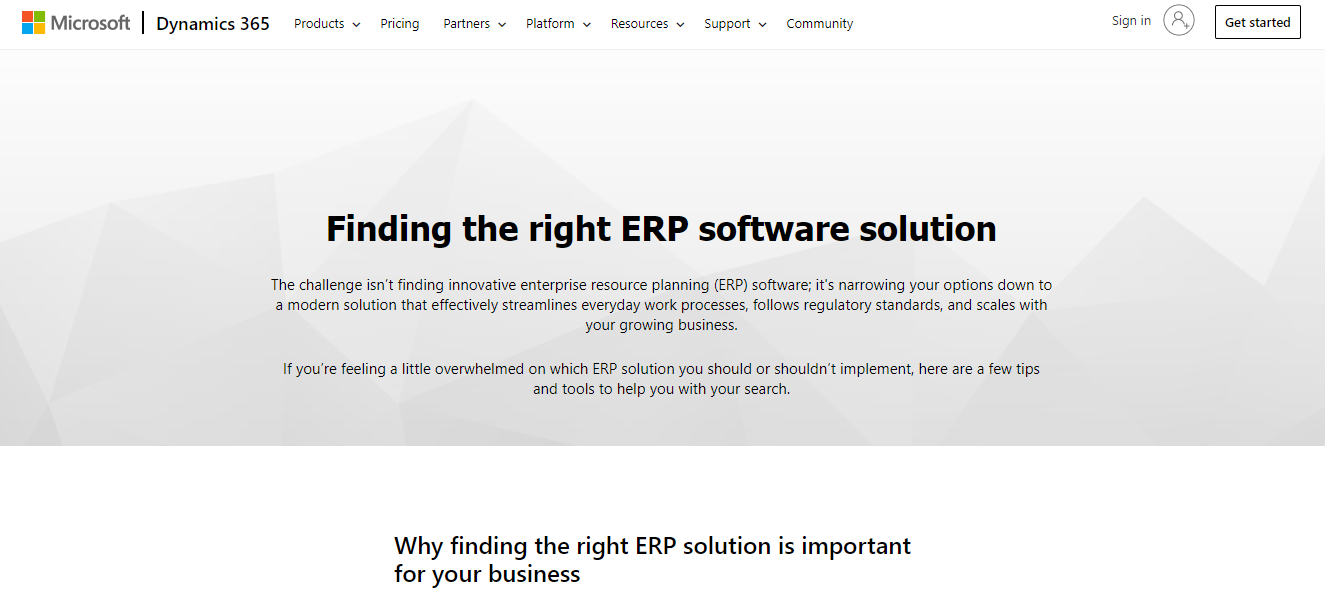
Microsoft Dynamics is the solution leader three years in a row in the Gartner Magic Quadrant 2023 for Cloud ERP for product-centric enterprises. Small and medium-sized businesses and mid-markets often choose this company as the solution.
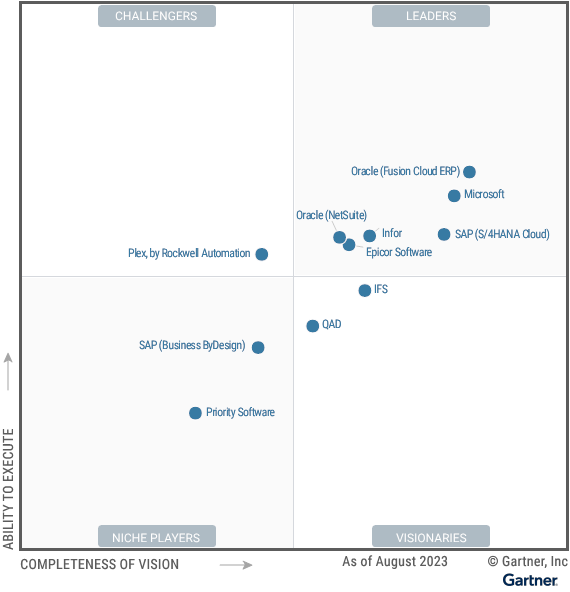
Source: Magic Quadrant for Cloud ERP for Product-Centric Enterprises
Besides, Microsoft Dynamics holds a significant market share in the global ERP software market with 11%. As of September 2023, Dynamics 365 serves more than 29,000 domains globally (according to Statista).
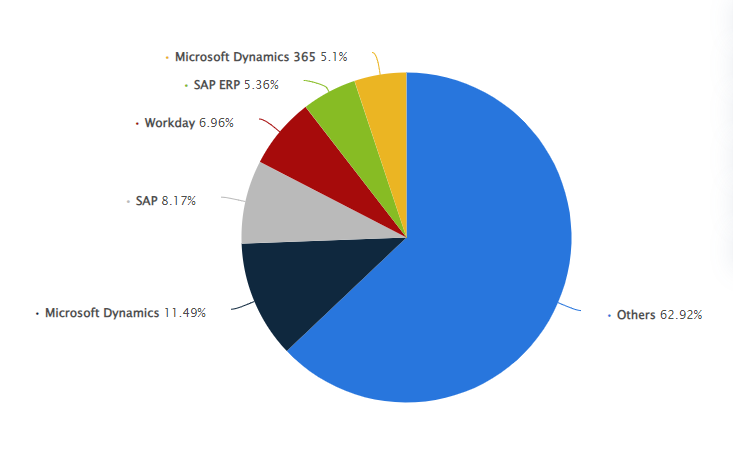
Some types of Microsoft Dynamics ERP systems:
- Microsoft Dynamics GP
- Microsoft Dynamics SL
- Microsoft Dynamics 365 Business Central
- Microsoft Dynamics 365 Finance and Operations
SAP ERP
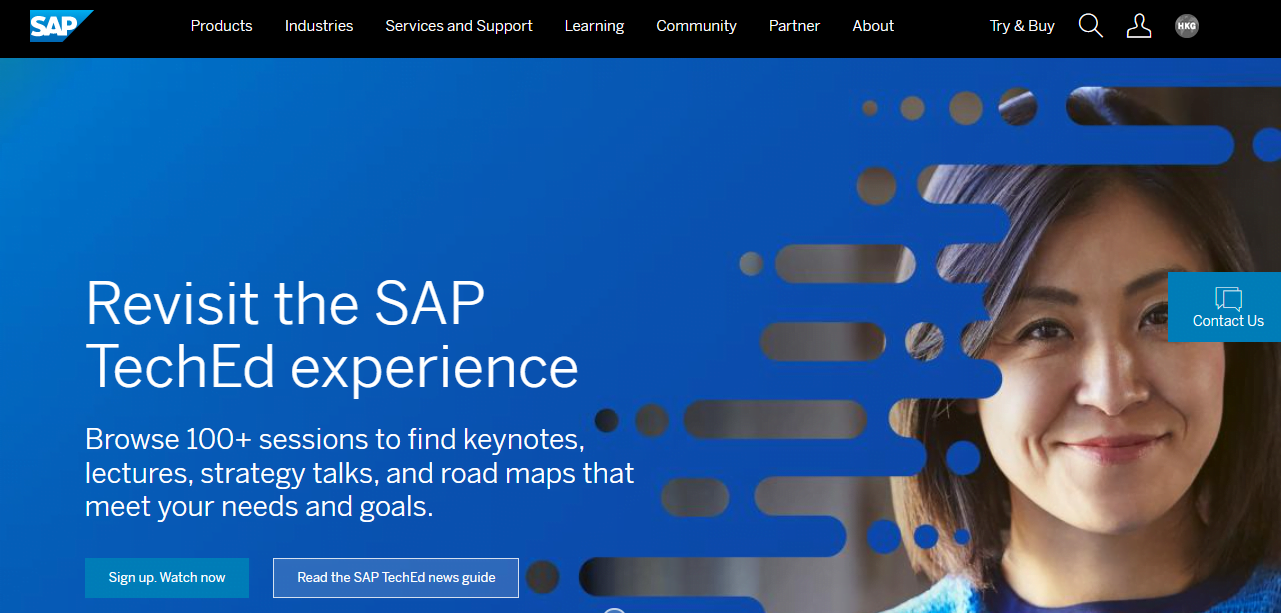
SAP ERP has been a pioneer since the launch of the ERP software market. These system solutions include SAP S/4HANA, SAP Business One, and SAP Business ByDesign. Besides, ERP solutions from SAP give you tools designed to simplify business processes and give you an edge over your competitors. And this provider offers solutions for all types and sizes of businesses. According to Tech Report, SAP ERP customers represent 98% of the 100 most valuable brands including famous names like Nestle, Coca-Cola, Dell, etc.
Infor
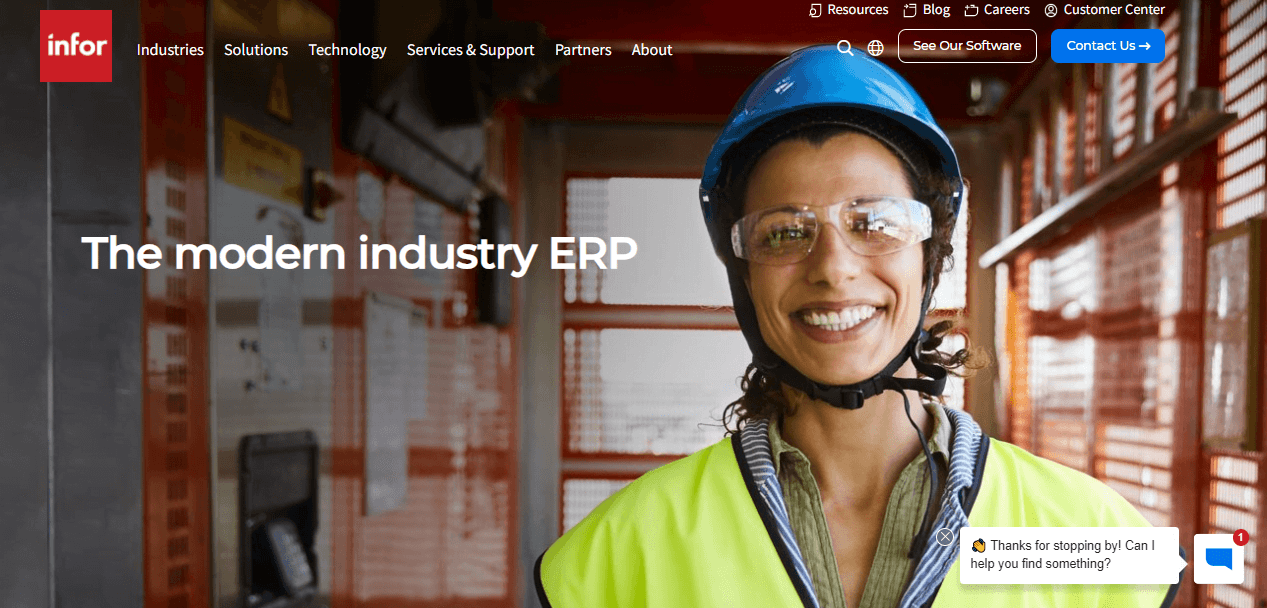
Infor is well-known in the cloud computing space with a significant and diverse customer base, especially in the manufacturing, healthcare, and distribution sectors. It provides software to nearly 70,000 customers in 200 countries and territories. Infor includes many solutions to choose from such as:
- Infor M3
- Infor LN
- Infor SyteLine
- Infor Distribution SX.e
- Infor SunSystems
Epicor
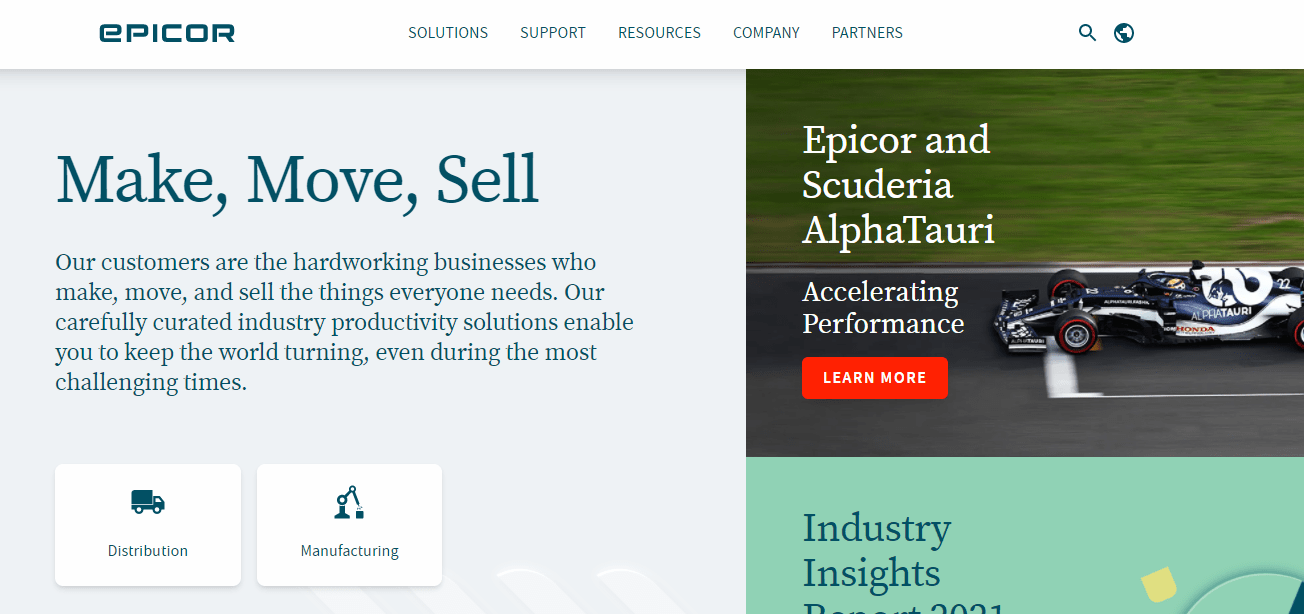
Epicor is a company for small and medium-sized businesses with over 20,000 customers across 150 countries with over 2.3M users daily. Its products have their own unique features. The first product- Epicor 10 is a product that offers multiple deployment models. Otherwise, Prophet 21 leads the way in supply chain optimization.
Acumatica
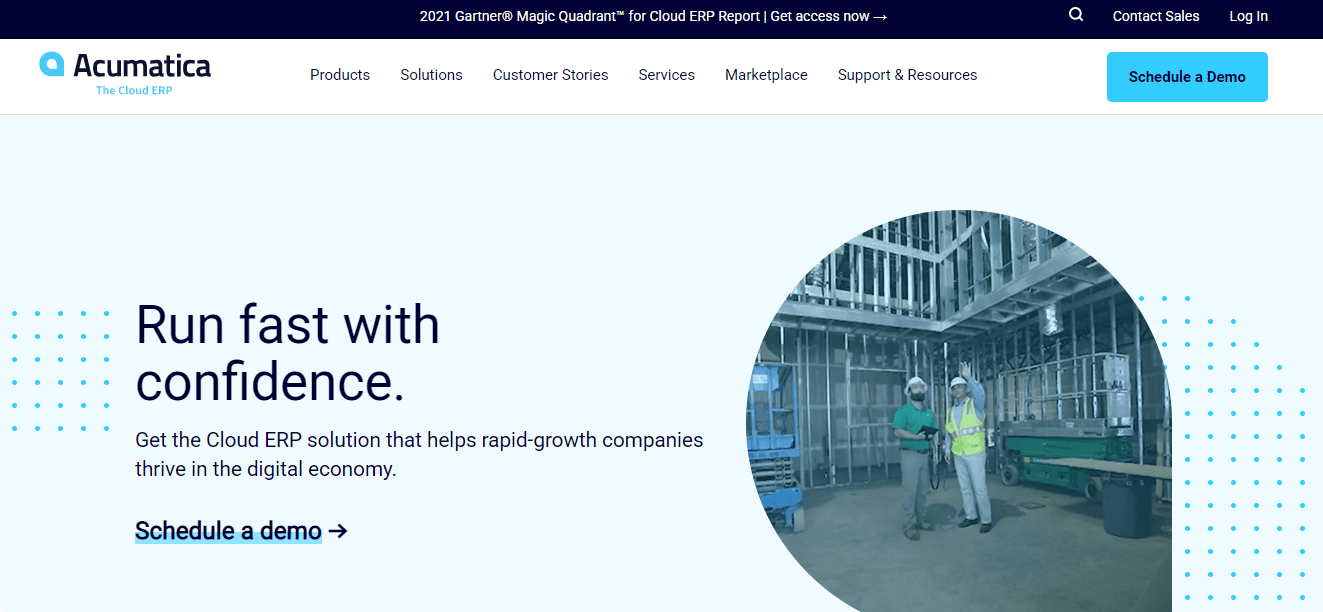
Acumatica is a cloud solution designed for small and medium businesses. Acumatica’s suite of integrated applications is very complete, including finance, accounting, inventory management, CRM, and more. With differentiated features like anywhere and any device access, multi-user access, or a “one-size-fits-all” solution, Acumatica cloud ERP will strongly accelerate your business. In particular, this system allows native integration for BigCommerce and Shopify. Therefore, Acumatica integration will expand your business capabilities.
Furthermore, Acumatica 2024 R1 introduces features that leverage AI and machine learning, improving data processing and decision-making for businesses. Additionally, improvements in usability and mobile integration are significant highlights.
IFS
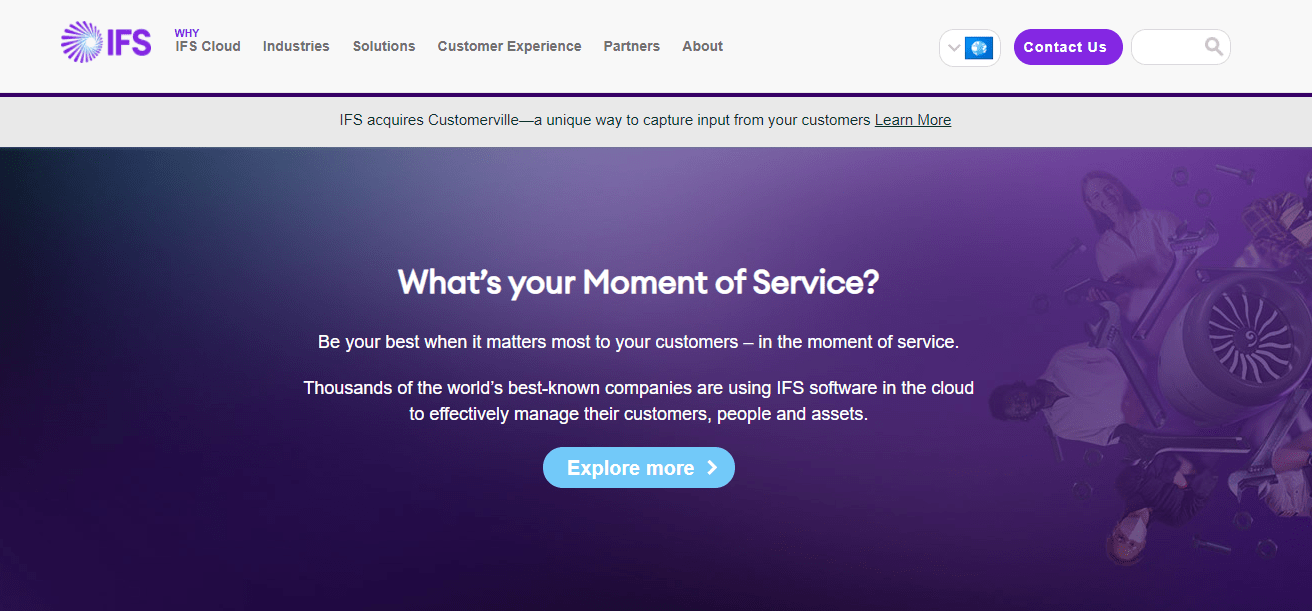
IFS is a company for large enterprises and large organizations supporting more than 10,000 customers globally. The majority of IFS systems serve the aerospace, defense, manufacturing, construction, and infrastructure industries, as well as other industries and services. Furthermore, this solution comes with several features, such as:
- Powerful end-to-end functionality
- Artificial intelligence
- Machine learning capabilities.
How to Approach ERP Integration?
ERP integration is an approach to connecting ERP systems and other systems to help unify data and consolidate operations. By integrating ERP software, businesses can streamline operations, improve productivity, and gain a competitive advantage.
Businesses will not have to worry about having to spend a large amount of money or build an in-house IT team to serve their integration when there are now many integration platforms emerging with high expertise and costs that can be adapted. They will no longer need to have technical knowledge or spend human resources on integration projects; instead, integration middleware will handle it all.
So, how to integrate ERP with other business processes?
The HexaSync Integration Platform is middleware that seamlessly automates your stand-alone systems through APIs. This platform has solved many complex problems in integrating ERP software such as Acumatica, SAP B1, Microsoft Dynamic, and Infor Syteline with other systems such as eCommerce, POS, and Marketplace.
Indeed, the HexaSync platform will help your business optimize data management and take full advantage of technological advances in business operations. You won’t be asked to do anything, just provide your credentials and request synchronization, and HexaSync will handle it all.
Final Words
In short, ERP is a great invention for businesses, especially growing companies. Understanding “what is ERP and how it works” will help you have a clearer and more specific picture of ERP software. Thanks to that, you can choose which model and ERP system provider are suitable for your business.
